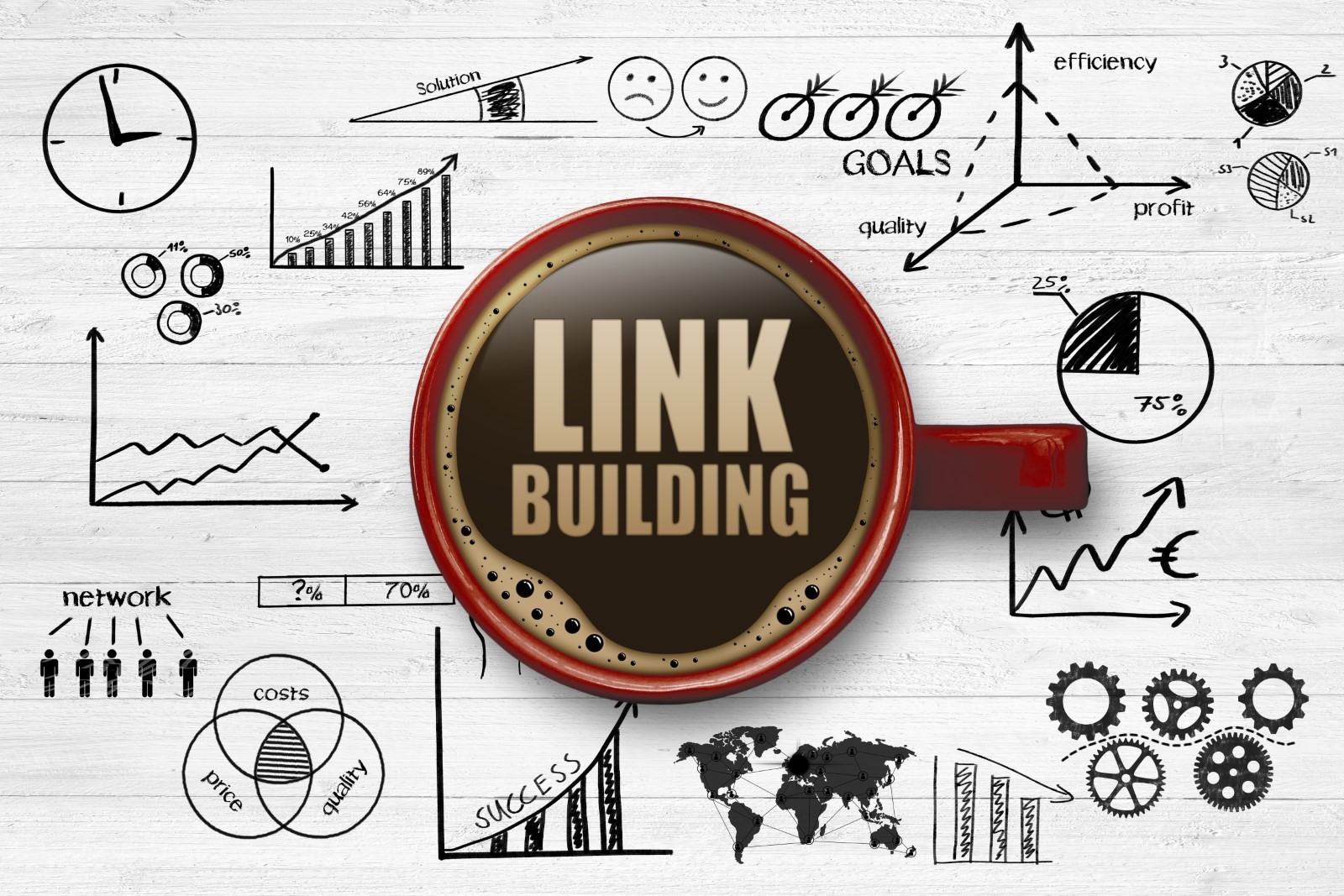Have you ever been on a road trip, utterly lost, but then found your way through the signposts? Well, link building in SEO isn’t much different. It’s like laying down the right breadcrumbs or signposts in the digital labyrinth that leads the way to your website. In the online world, if you know how to create the right signposts, you can drive impressive amounts of traffic to your website.
A few years back, I was working for a textbook publishing firm. Every week, I wrote in-depth articles, painstakingly researched trends in the educational sector, and curated the perfect images. Still, the blog remained unnoticed by its target audience. The effort was there, the quality was there, but the visibility? Not so much.
What turned the tables was the implementation of link building. I spent months developing a strategic link building campaign, building relationships with other blogs, guest posting, and actively participating in educational forums. Gradually, I started weaving a network of links that guided people to our blog.
The change was phenomenal. In six months, our organic traffic increased by 120%. And that’s not all – the average session duration increased by 15%, and the bounce rate dropped by 23%. The blog had finally found its way onto the radars of educators and other members of the industry.
So, how did link building turn a largely ignored blog into one of the fastest-growing players in its niche? Read on.
What is link building?

Link building refers to the act of obtaining hyperlinks from other websites to your own. These links are essentially votes of confidence from other websites. It’s a crucial aspect of any successful SEO strategy and something SEO writers like me have used frequently to boost a site’s online visibility.
Why is link building important for SEO?
SEO experts currently regard external linking as among the top factors for search optimisation. And more than 90% of them believe that link building will remain vital in Google’s ranking criteria for the next several years. It may not be easy, but as I’ve found out, the benefits are worth the effort.
How to do link building
Link building can be challenging, but with the right strategies, it can be significantly more manageable. Contrary to what many believe, link building isn’t a Herculean task meant only for SEO wizards. No, it’s a craft that can be mastered by anyone with the right guidance and a dash of patience.
Types of links
As you embark on your SEO journey, you’ll undoubtedly encounter various types of backlinks, just as I did when devising my link building strategy. Below are these different types of links:
- Backlinks: These are links from other websites pointing to your site. Backlinks from high-authority websites are golden nuggets in SEO – they tell search engines your website is trustworthy and relevant.
- Internal links: These are links from one page on your website to another. They help in improving site navigation and distributing page authority throughout your website.
- External links: These are links from your website to another website. They add value to your content by providing additional information and can enhance your site’s trustworthiness.
- Nofollow links: These are links that tell search engines not to follow them or pass any ‘link juice.’ They might not directly improve your rankings, but they contribute to a natural link profile and can bring in referral traffic.
Grasping the nature of these links is essential for creating a successful campaign.
Benefits of link building
Link building isn’t an easy process. Week after week, you’ll have to carry out detailed research, analysis, and execution of projects. But it’s more than just an SEO strategy. It’s a powerful tool that can give your site a lot of benefits, such as these:
- Improves SEO ranking: Acquiring high-quality backlinks from authoritative websites can significantly enhance your search engine ranking.
- Attracts more visitors: By securing links from other websites, you can expose your content to a new audience and attract more visitors.
- Increases website traffic: As your website ranks higher in search results, you’ll likely experience an increase in organic traffic.
- Boosts brand awareness: Link building can help establish your brand as an authority in your industry, leading to increased brand recognition and trust.
- Improves customer loyalty: When users find valuable content through links from other websites, they’re more likely to trust and return to your site.
Link building might seem daunting, requiring dedicated research and execution, but its benefits make it worthwhile. By investing in a robust link building strategy, you’re planting seeds for long-term growth and success for your site.
Strategies for link building
When it comes to link building, a well-defined strategy can make all the difference. And considering that about 13% of SEO experts believe link building is SEO’s most important tactic, getting the right strategy is crucial. But fear not – with the right techniques, which we’ll explore next, this challenge can turn into an opportunity for growth.
- Guest blogging: Guest blogging is the most popular form of link building strategy. Crafting guest posts for respected websites within your niche can assist in obtaining valuable backlinks while introducing your content to fresh audiences.
- Social media: Sharing your content on social media platforms can attract more visitors and encourage others to link to your website.

- Forum posting: Participating in relevant online forums and including links to your content in your signature or comments can help drive traffic and build backlinks.
- Press releases: Distributing press releases with links to your website can help you gain media coverage and backlinks from news websites.
- Content marketing: Creating high-quality, shareable content can naturally attract links from other websites.
In a nutshell, the journey of link building becomes navigable and promising with the right strategies at hand. Adopting these practices can transform the challenge of link building into an opportunity for sustained growth.
Examples of link building
One of the best ways to illustrate link building is through real-world examples. Here are a few scenarios that have worked well for me and others in the industry:
- Backlinks from high-authority websites As an SEO content writer, I’ve seen the power of backlinks from high-authority websites. For instance, in my previous job, when a renowned educational blog reviewed one of our advanced mathematics textbooks and linked back to our product page, it resulted in a significant spike in our website traffic and a boost in our domain authority.
- Inbound links from related websites Relevance is key in link building. When a study-tips blog mentioned our publication on effective study habits and linked to our blog post, we attracted a targeted audience genuinely interested in our content. This not only increased our website’s overall engagement but also improved our standing in search engine results.
- External links from industry publications Industry publications can offer valuable link building opportunities. We once contributed data from our educational research to an industry report published by an online education news portal. In appreciation, they included a link to our website in their report, reinforcing our position as a trusted authority in the educational publishing realm.
- Nofollow links from social media profiles While nofollow links don’t pass direct SEO value, they still play a role in a balanced link building strategy. By actively sharing our content on our social media profiles and including links back to our blog, we managed to catch the attention of other content creators and educators. As a result, several have referenced our work in their content, creating valuable ‘follow’ backlinks.
Each of these strategies presents a unique opportunity for link building. Remember, successful link building requires patience, persistence, and a focus on quality and relevance. Link building isn’t a sprint; it’s a marathon. Keep going, and over time, you’ll see your site’s authority and traffic grow.
Tips for link building

Link building goes beyond knowing its worth – it’s about using smart strategies to secure top-quality links. Did you know that over 90% of online content gets zero Google traffic? Often, this is due to a lack of quality backlinks.
This statistic highlights the critical need for savvy SEO link building tactics. In this section, we’ll unveil tips that can propel your content into the limelight, capturing the attention it deserves.
- Build links from high-quality websites: Prioritise quality over quantity. Links from high-quality sites hold more SEO weight and boost your domain’s credibility.
- Build links from relevant websites: Relevance is key. Establish links from sites within your industry to target a genuinely interested audience, enhancing engagement and SEO rankings.
- Build links from authoritative websites: Authority matters. Earning backlinks from reputable websites can significantly uplift your online reputation and visibility.
- Build links from natural sources: Embrace authenticity. Links naturally acquired through high-quality content and genuine partnerships create a strong, organic link profile that search engines favour.
These tips, which prioritise high-quality, relevant, authoritative sources and natural acquisition methods, aim to ensure your content isn’t part of the 90% that goes unnoticed.
Myths about link building
There are many misconceptions about link building in the world of SEO. Here are a few common myths:
- You need to buy links to rank well: Purchasing links can actually harm your SEO performance, as search engines may penalise websites that engage in such practices.
- You need to build links from every website you can: Quality is more important than quantity when it comes to link building. Focus on acquiring links from reputable, relevant websites.
- You need to build links as quickly as possible: Rapid link building can appear suspicious to search engines and may result in penalties. Instead, focus on building links naturally over time.
Understanding the myths surrounding link building is crucial to avoid common pitfalls in your SEO strategy. Often, successful link building relies on quality, relevance, and a sustainable, organic approach. Always prioritise these over shortcuts and quick fixes for a robust, effective SEO strategy.
Conclusion
Link building remains a powerful cornerstone of SEO strategy. It’s a dynamic and multifaceted process that requires time, effort, and strategic planning. However, the rewards are well worth it. Higher search engine rankings, increased traffic, elevated brand awareness, and improved customer loyalty are just a few of the fruits your site can reap from effective link building.
Just remember, focus on quality over quantity, relevancy over randomness, and organic over artificial links. Embrace the marathon of link building and watch your website grow and thrive.
